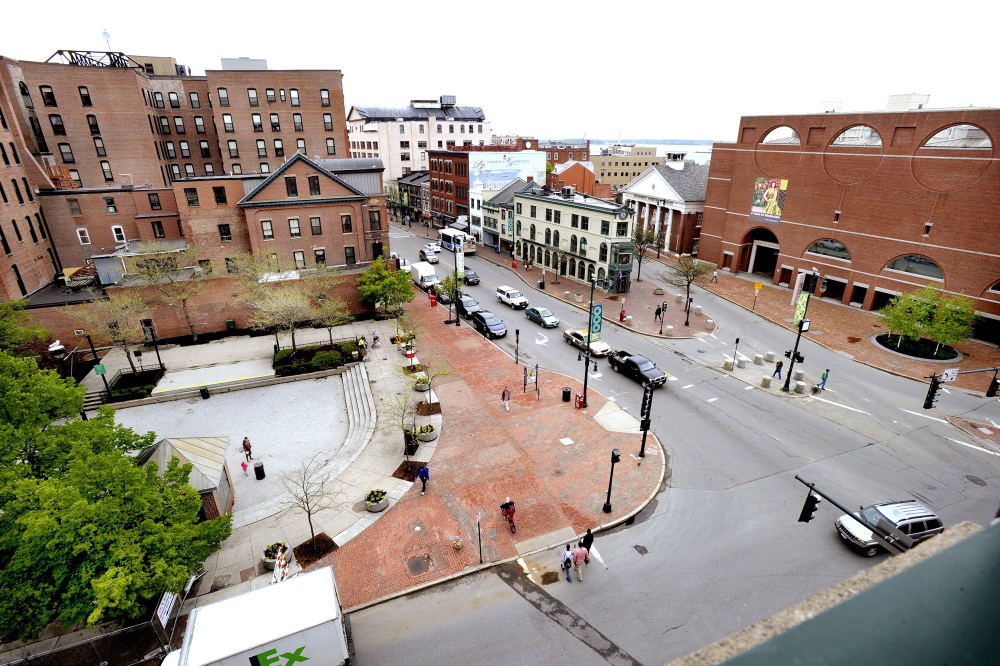Every election is the same – the good guys against the bad guys.
As Election Day draws near, supporters of both sides get more entrenched in their positions and more suspicious of their opponents’ motives. Hard feelings get harder and one side walks away angry and disappointed.
That’s why the electoral process is often the wrong way to resolve a complicated land-use question like the sale of part of Congress Square Park. The issue is sharply dividing key constituencies in Portland, ones that will have to work together as the city looks for creative responses to the stresses of development pressure. City voters should reject this proposed ordinance and work toward finding ways to deal with growth and change in a collaborative manner.
Lost in the rhetoric of this campaign are many common interests and shared values. But instead of bringing the sides together, the referendum process drives them apart.
Most people would agree that development is good for Portland. New buildings and businesses create value and revenue on the tax rolls. Portland is lucky that people want to build here and that the city has room to grow.
But the wrong kind of growth can kill what makes the city attractive. As demand for housing increases, so do rents. Young people and middle-class families get squeezed out of newly hot neighborhoods, changing the demographic composition of the city. We’ve already seen how as the city gets richer from development, the students in its schools are getting poorer.
Losing middle-class housing while filling the schools with students who have more complicated needs is a recipe for a municipal death spiral that no one wants.
What does this have to do with Question 1? Absolutely nothing, and that’s the point.
Instead of having a constructive debate defining Portland’s housing, education and transit needs, we are having a divisive election about a false claim: that if the City Council isn’t stopped, the city’s parks might be sold for development. It bears repeating that the city could not sell iconic treasures like Deering Oaks or the Eastern Prom to a developer, and no one in city government would want to sell them even if they could. That is a politically effective but misleading statement of what’s at stake in this election by the “Vote Yes” campaign.
It’s also true that, just like private property, park land can be taken by eminent domain for public purposes. That would be equally true if the referendum were to pass.
This election is really a question about how decisions are made. Open space is important in a city, but it’s not the only thing that matters. If the accountable elected leaders can’t be trusted to weigh the various factors that make a city livable, then who is?
This election is not a choice between good guys and bad guys – it’s about what process we want to use to make decisions that don’t lend themselves to yes-or-no answers.
Portland residents should pick dialogue over division and vote “no” on June 10.
Send questions/comments to the editors.



Success. Please wait for the page to reload. If the page does not reload within 5 seconds, please refresh the page.
Enter your email and password to access comments.
Hi, to comment on stories you must . This profile is in addition to your subscription and website login.
Already have a commenting profile? .
Invalid username/password.
Please check your email to confirm and complete your registration.
Only subscribers are eligible to post comments. Please subscribe or login first for digital access. Here’s why.
Use the form below to reset your password. When you've submitted your account email, we will send an email with a reset code.